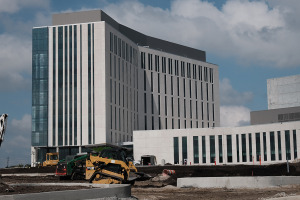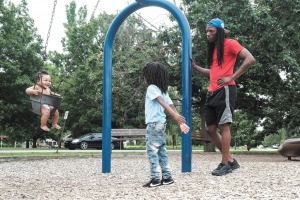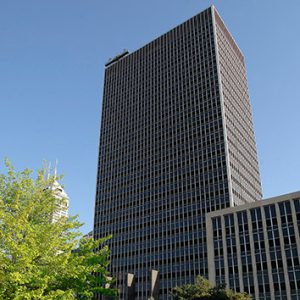
Cultural Trail breaks ground on $30 million expansion
The Indianapolis Cultural Trail Inc. is starting work on its 2-mile expansion, the trail’s first extension since it opened in 2013.

The Indianapolis Cultural Trail Inc. is starting work on its 2-mile expansion, the trail’s first extension since it opened in 2013.
Phyllis Boyd was previously executive director of youth-oriented organization Groundwork Indy, but she also has a background in landscape architecture and urban planning.

Councilors adopted the bulk of the budget proposal 23-1, with Democrat Ethan Evans voting against.

The centerpiece of Indianapolis’ $590 million Community Justice Campus is set to open in December, five years after Mayor Joe Hogsett first unveiled his vision for it.
More than two dozen Indianapolis parks will receive funding allocated to Indianapolis under the American Rescue for renovations to their playgrounds, Mayor Joe Hogsett’s administration announced Thursday.

The projects are part of the Circle City Forward infrastructure initiative announced by Mayor Joe Hogsett in February.
The Indianapolis City-County Council on Monday unanimously approved about $467 million in spending for pandemic recovery initiatives, rental assistance, a range of new public buildings and several greenway projects, most of it funded with federal coronavirus relief dollars.

City officials on Monday released a long-anticipated request for developers to submit ideas for reuse of the 28-story Indianapolis City-County Building, along with studies that show it would take more than $35 million in basic upgrades to repurpose the structure.
An Indianapolis City-County Council committee on Tuesday unanimously voted to advance a plan allowing public employees’ wages to rise with inflation, as work continues on the city’s first public pay scale change in more than a decade.
Indianapolis Mayor Joe Hogsett on Monday said he thinks the Marion County Prosecutor’s Office should relocate from downtown to the new Community Justice Campus, but that decision is still up in the air, according to Prosecutor Ryan Mears.
The city’s IndyRent program—which launched last July with $15 million in funding and eventually grew to $96 million—has so far pushed out $53 million in rent payments to landlords of those seeking rental assistance.
Five years after Indianapolis’ 25-year streetlight moratorium ended, a city collaboration with AES Indiana has resulted in nearly all existing lighting being replaced with LED bulbs and 1,600 new streetlights being installed, the city announced Monday.
A federal-sized infrastructure assist would allow Indianapolis to take responsibility for some of the unjust transportation projects of our city’s history.

Indianapolis’ goal of fully eliminating pandemic-related restrictions by Independence Day isn’t set in stone, local officials said Tuesday.
The grants will help fund wellness projects supporting communities that were disproportionately impacted by the pandemic
Bilingual volunteers will staff the nine-language hotline starting Saturday, as health disparities by race and ethnicity linger in local case counts and inoculation rates.

The city identified 605 residential lane miles across Indianapolis that are in particularly poor condition. The city is allocating enough money to fix only about 10% of those miles, starting as soon as next spring.
By enjoying an unbroken winning streak of mayoral leadership, Indianapolis has made boldness, well…boring.
Along with a morale boost, the NCAA Tournament will serve as a major economic boost for our downtown businesses and outlying areas.
Schaffer got her start with Hogsett as a volunteer—and eventually a full-time staffer—on his first mayoral campaign and became his communications director when he took office in 2016.